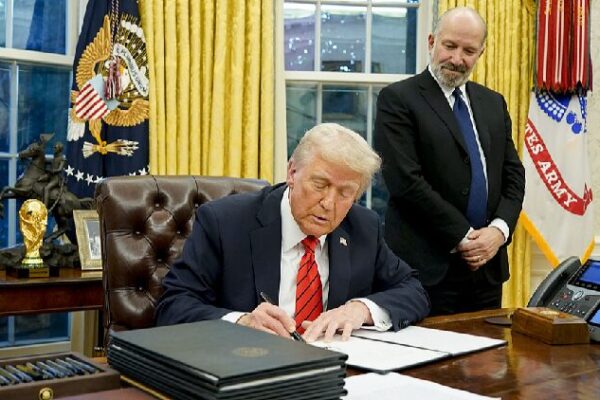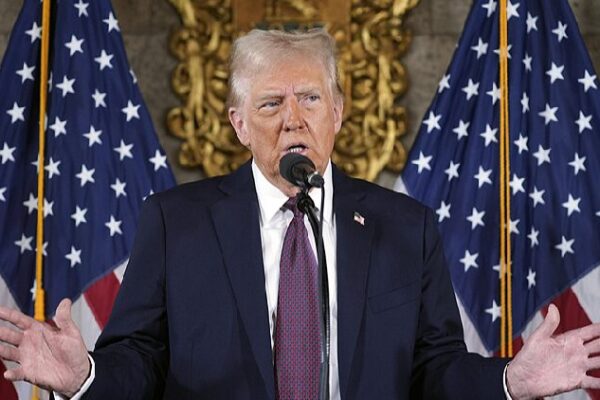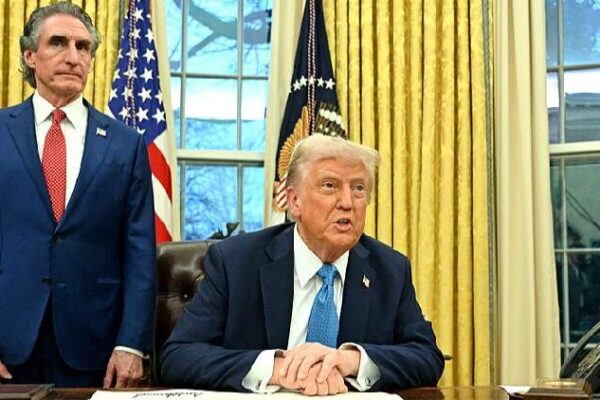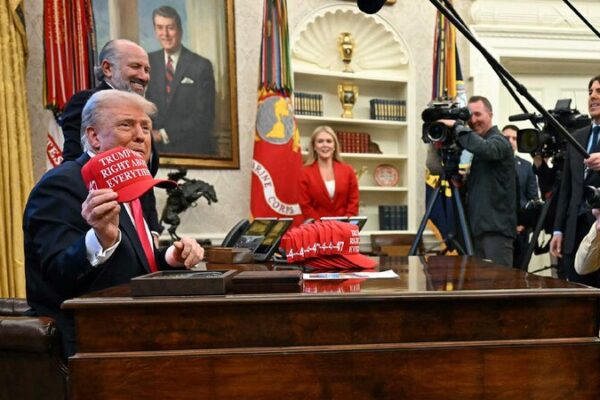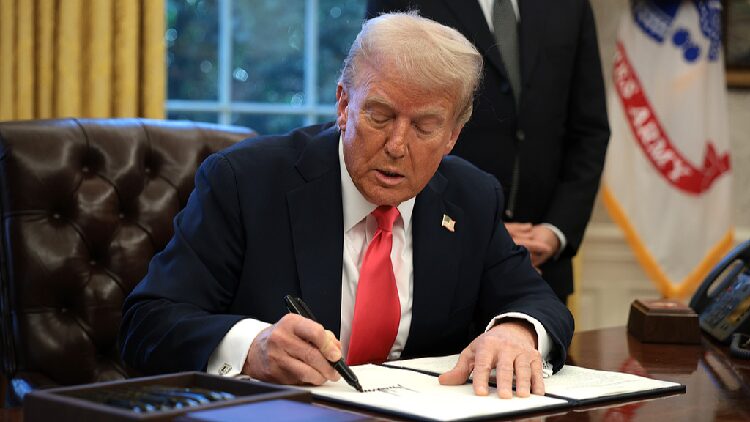The United States’ decision to impose tariffs on steel and aluminum imports has sparked widespread condemnation from countries around the world. President Donald Trump announced that starting next month, a 25% tariff on steel and a 10% tariff on aluminum will take effect, impacting key trading partners such as Canada, Mexico, the European Union, Brazil, and South Korea.
The move aims to protect U.S. domestic industries but has raised fears of a global trade war. “It’s 25 percent without exceptions or exemptions,” Trump stated, emphasizing that the tariffs would apply to all countries.
International Response
Mexican Economy Minister Ildefonso Guajardo called the tariffs “not justified” and “unfair,” expressing concern over the potential negative impact on Mexico’s economy. Canadian Prime Minister Justin Trudeau labeled the tariffs “unacceptable” and promised a firm response if necessary.
The European Union also voiced its opposition. European Commission President Ursula von der Leyen warned that the EU would take “firm and proportionate countermeasures.” “Unjustified tariffs on the EU will not go unanswered,” she declared, emphasizing the EU’s commitment to protecting its economic interests.
German Chancellor Angela Merkel echoed these sentiments, affirming that the EU would respond with a united front if the U.S. does not reconsider its position. The American Chamber of Commerce to the EU criticized the move as harmful to jobs and prosperity on both sides of the Atlantic.
Concerns from Businesses
Businesses across the United States are bracing for the impact. Companies reliant on steel and aluminum imports fear increased costs and supply chain disruptions. Jim Farley, CEO of Ford Motor Company, mentioned that previous tariff threats have already added “a lot of cost and a lot of chaos” to American businesses.
The Coalition of American Metal Manufacturers and Users (CAMMU) expressed concern that the lack of a workable exclusion process would hurt U.S. manufacturers, particularly small and medium-sized businesses. “Foreign customers are shifting their supply chains away from U.S. producers,” the group stated, highlighting fears of lost business and economic setbacks.
Potential Economic Impact
Analysts warn that domestic production capacities would need significant expansion to replace imports. Volkmar Baur, an analyst at Commerzbank, noted that such rapid growth might not be feasible in the short term. The tariffs could also lead to higher prices for consumers and increased inflation.
Despite threats of retaliation from other countries, President Trump remains undeterred. When asked about potential countermeasures, he said, “I don’t mind.” Trump also indicated plans to announce reciprocal tariffs on countries that impose duties on U.S. goods, mentioning cars, semiconductors, and pharmaceuticals as possible targets.
The global community now awaits further developments, concerned about the tariffs’ implications for international trade and economic stability.
Reference(s):
U.S. tariffs on steel, aluminum spark strong backlash across the world
cgtn.com

